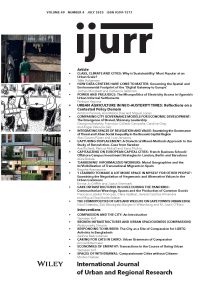In this article I examine the micropolitics of electricity access in informal settlements in Kampala, Uganda, by drawing on field research conducted in 2022. I argue that local dynamics shape and variegate household-level experiences with electricity and urge consideration of these micropolitics for effective energy provision. My research exposes the complex power and social hierarchy of electricity access and reveals that households, despite being the end users of electricity, often do not have direct and autonomous access to the electricity grid. Landlords and informal providers mediate and gatekeep access to electricity and infrastructure, creating an asymmetrical interdependence with consumers. However, despite their centrality, these actors are largely missing in urban energy discourse and slum electrification efforts. Shared infrastructures intended to ease grid access have become artefacts of control over energy usage and are fuelling inter-household tensions, thereby curtailing the usefulness of electricity in some instances. Protracted disengagement and absence of the utility in informal settlements engenders mistrust and prejudice, which are detrimental to electricity access. These findings reveal a complex picture of electricity access in informal settlements that may inform service delivery to these communities and advance our understanding of energy infrastructures in African cities.
Details
Written by:
Penlope Yaguma
Digital Object Identifier (DOI)
https://doi.org/10.1111/1468-2427.13345
About DOI

